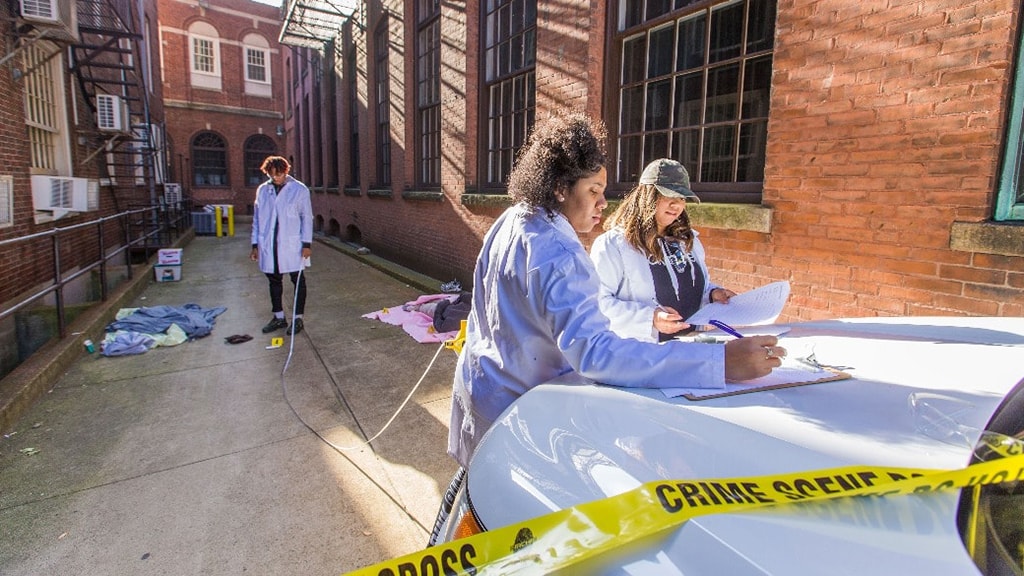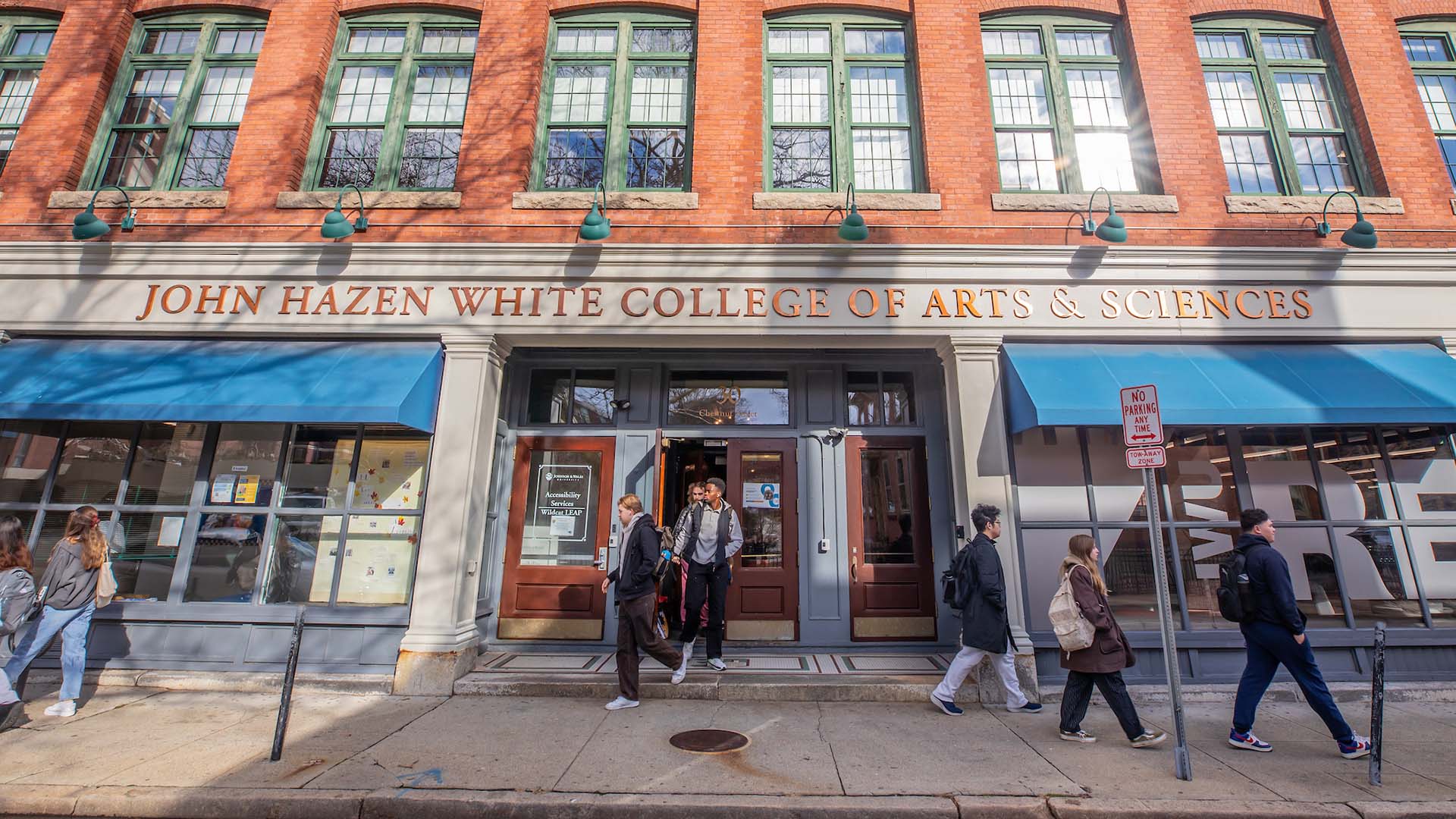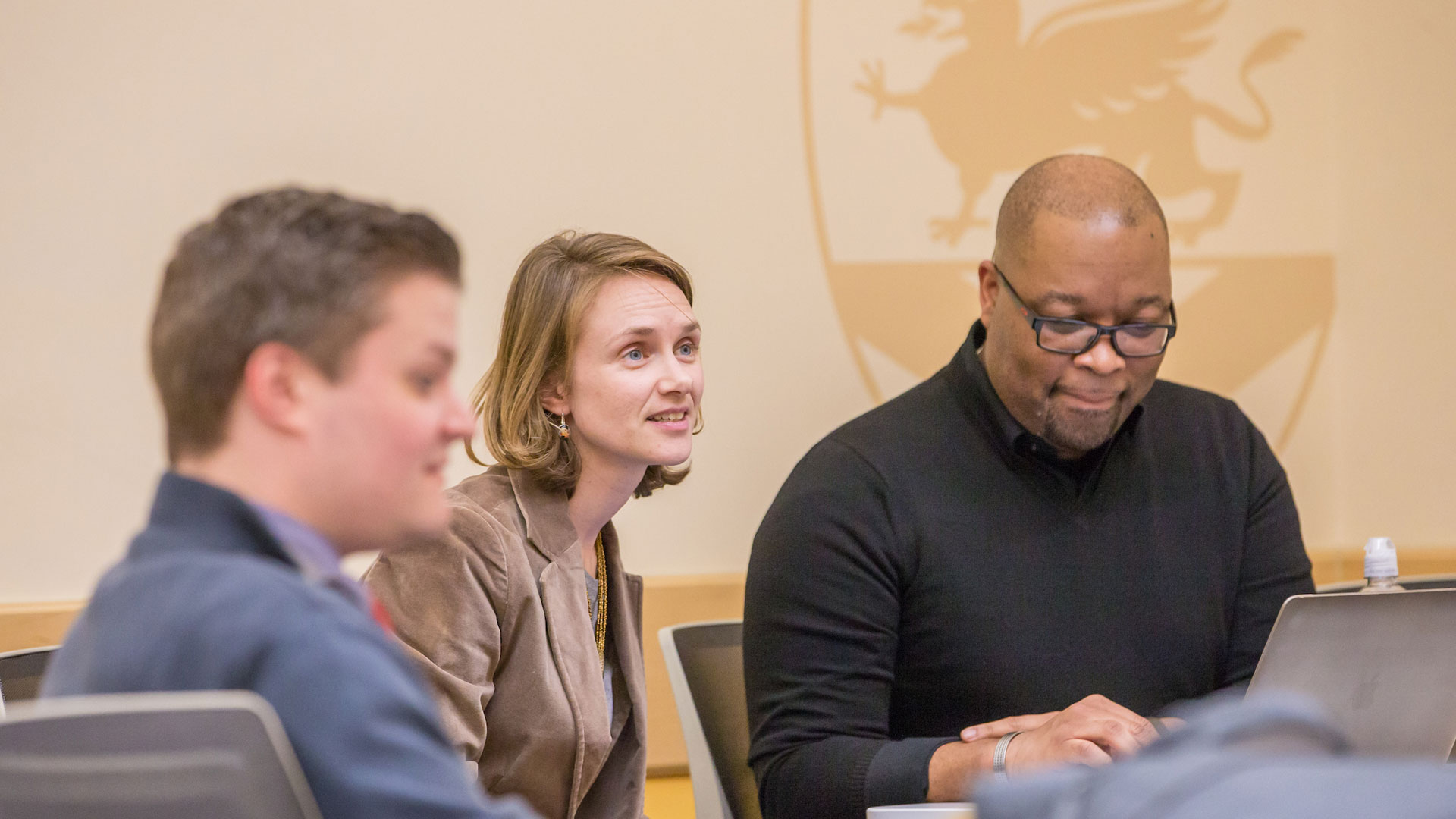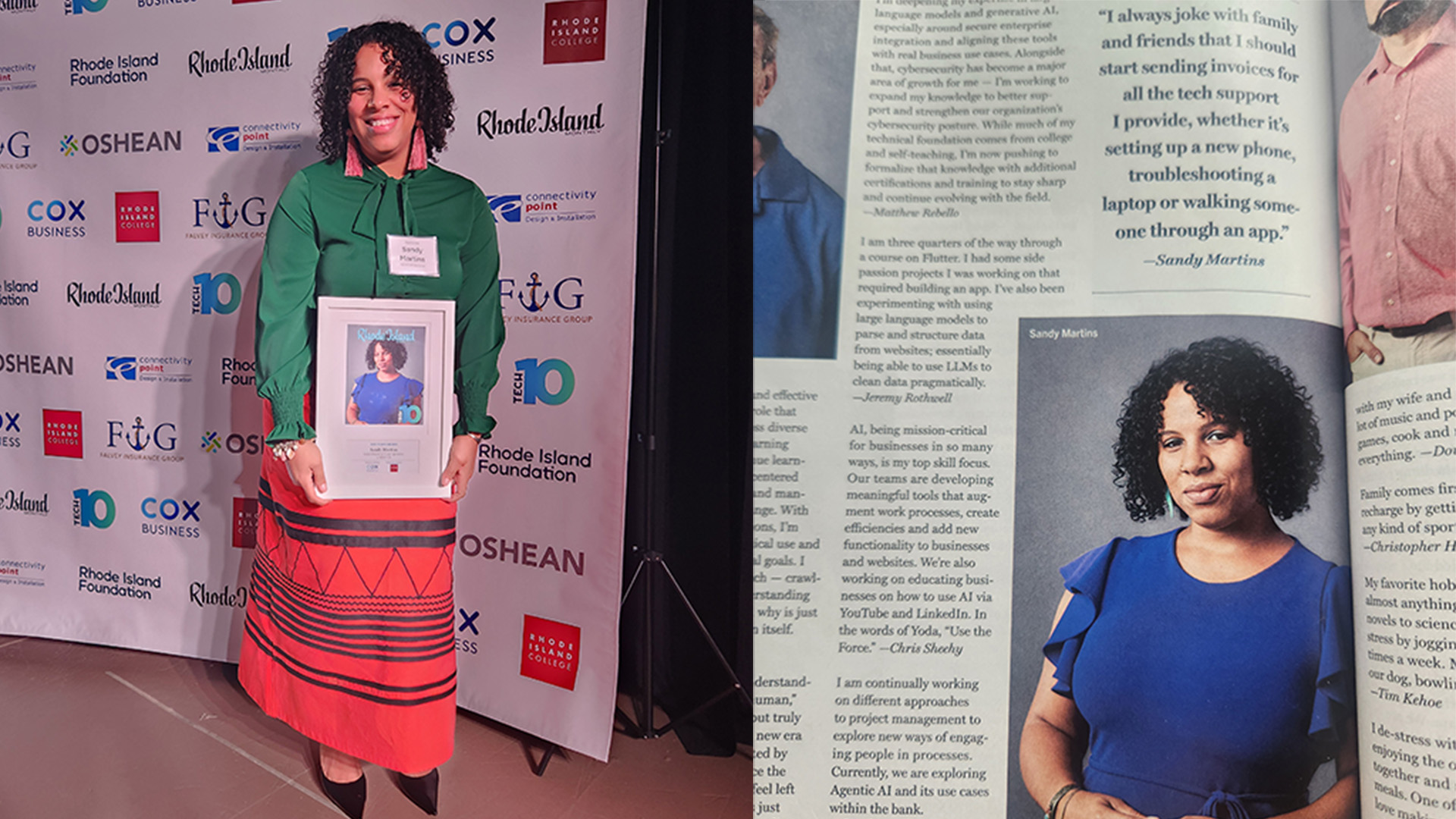The JWU Advantage: Criminal Justice

When it comes to a field as broad as criminal justice, there’s many reasons why someone would consider a criminal justice degree. Movies and TV make it look exciting — CIA agents foiling an international crisis, local beat police tracking down new leads, and forensic teams using the latest DNA technology to identify a suspect — but what’s a career in criminal justice really like, and how do you develop the skills you need?
That answer is simple: At JWU.
What makes JWU’s criminal justice program stand out?
At Johnson & Wales, we know that along with a strong curriculum, you need faculty that have the experience to back that up in order to give our students a shot at success. “The faculty, full-time and part-time, are committed to student success and embrace the interdisciplinary nature of criminal justice. We ensure that our students have an enriching learning experience that puts them in the best position possible to be successful in their chosen career,” said Paul Sylvestre, Ph.D., professor and chair of JWU’s Criminal Justice department.
But not only do our criminal justice faculty instruct, they’re still active learners. The JWU Criminal Justice faculty attend conferences to keep up with the latest trends in the field, bringing those findings back to the classroom to share with their students.
In fact, according to Sylvestre, Johnson & Wales’s Criminal Justice Department stays ahead of the curve. “Well before the recent events of George Floyd and Breonna Taylor, we had been discussing providing our students, many of whom do not wish to enter a career in policing, with an area of study focused on advocacy and problem-solving,” he said. “We have created five new electives which highlight and emphasize building relationships between the community and law enforcement in order to engage in crime management through problem-solving.”
What do criminal justice students study?
At Johnson & Wales University, our approach to criminal justice is a comprehensive one, leaving no stone unturned when it comes to your education. “Students in our program are given a holistic understanding of the criminal justice system rather than just instruction on the best practices in law enforcement,” said Sylvestre. “The faculty and our curriculum provide our students with the opportunity to rethink their views of justice through the prism of intergraded learning, while developing an appreciation for the interdisciplinary nature of the field of criminal justice.”
As a criminal justice student, you’ll focus on issues that plague both global and local law enforcement systems. According to Sylvestre, students in this program learn to develop their logic, critical thinking skills and ethical reasoning to have a comprehensive “understanding of such issues, as well as being necessary for effective career performance and progression.”
Along with developing the critical thinking and communication skills you’ll need to be successful in the field, at JWU we put an emphasis on hands-on learning. With a state of the art crime lab and crime-scene staging room, “our students are able to utilize an array of forensic equipment which allows them to learn about evidence collection, blood spatters, bullet trajectories, as well as fingerprint and footprint analysis.”
Want to see what courses our students take? Explore our offerings here!
Why get a degree in criminal justice?
There are many pathways a criminal justice professional can take. For some, they enlist in an agency’s bootcamp and after graduating begin to move up the ranks. For others, they may find themselves falling into the career because of a skill set they have. However, for students who know they want to work in the criminal justice system and want an advantage over their future colleagues, Sylvestre says a degree is the way to go.
“Communication skills allows someone in law enforcement to de-escalate and defuse a situation, negating use of force issues and thus eliminating a potential lawsuit or injury to citizen and officer.”
-Paul Sylvestre, Ph.D.
“The skill set that an individual learns in college — communication and critical thinking skills, as well as the exposure to individuals with diverse backgrounds and experiences — prepares a student who is interested in a career in law enforcement,” said Sylvestre.
In fact, according to the U.S. Bureau of Labor Statistics, the top 5 qualities of a criminal justice professional are the same: communication skills, empathy, good judgment, leadership skills and perceptiveness. “Communication skills allows someone in law enforcement to de-escalate and defuse a situation, negating use of force issues and thus eliminating a potential lawsuit or injury to citizen and officer,” Sylvestre explained.
But the usefulness of a criminal justice degree doesn’t end there. According to Sylvestre, departments around the nation are looking to fill open positions with college-educated candidates because of their reliability.
Want to Learn More?
Learn more about earning your bachelor’s degree in criminal justice today at Johnson & Wales.



